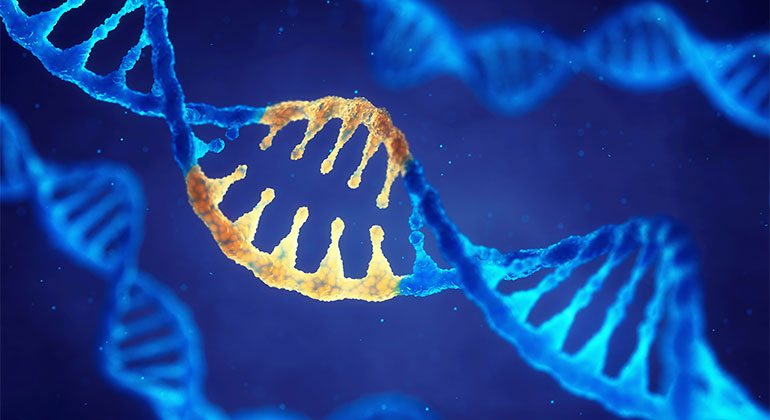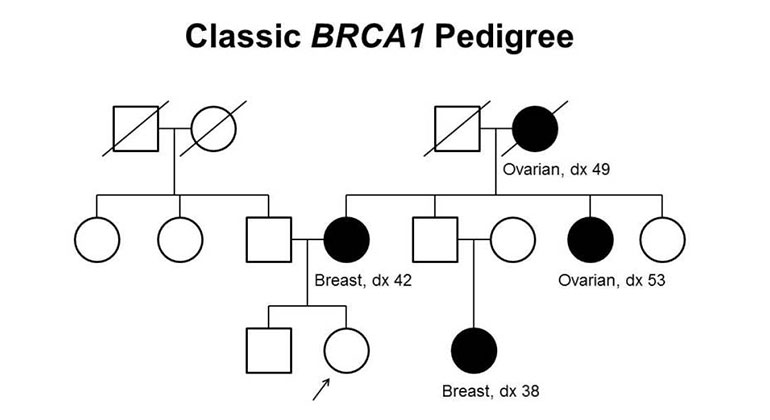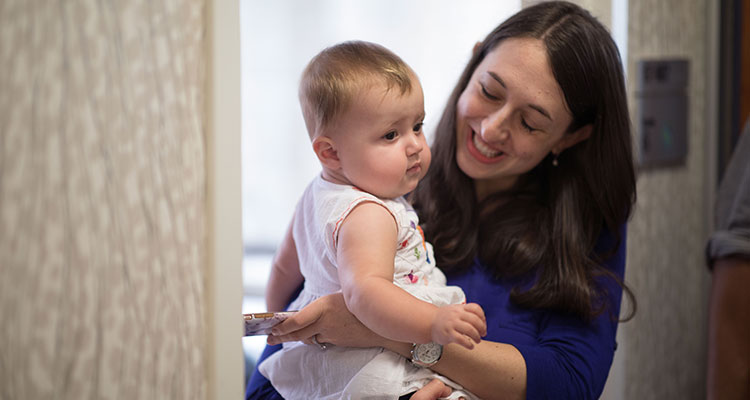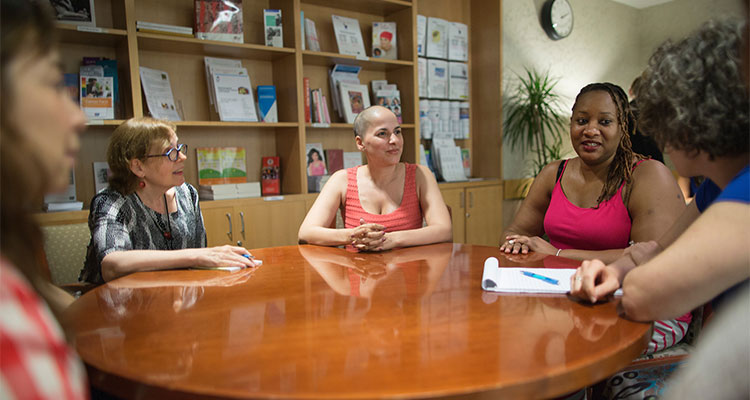Comprehensive BRCA Program for Men and Women


Men and women who carry genes that increase the risk of cancer want state-of-the-art, compassionate care. Our experts offer just that at The Mount Sinai Health System’s Comprehensive BRCA Program. Learning that you have a genetic mutation that increases your risk of cancer can be overwhelming. We provide comprehensive care tailored to your needs and those of your family. We can coordinate genetic testing for patients who have not had prior testing.
Genes and Cancer
Cancer starts when certain cells in the body grow out of control and the body’s normal regulatory mechanisms are not working properly. All cancers develop as a result of mutations or changes in your cells’ genes. Most of these changes are not passed on through the family. Only about 5 percent to 10 percent of cancers are caused by hereditary mutations—genetic mutations that can be passed on through generations.
About the BRCA Genes
BRCA1 and BRCA2 are genes that produce proteins that help repair damaged DNA. Everyone inherits two copies of each gene, one from each parent. If you inherit a mutation of the BRCA1 or BRCA2 gene, you are at an increased lifetime risk for developing certain cancers as compared to someone who does not have a mutation. People who have inherited a mutation in BRCA1 or BRCA2 also tend to develop cancer at younger ages than people who do not have a mutation. However, having a mutation does not mean that you will definitely develop cancer.
Women with a BRCA1 or BRCA2 mutation are at increased risk of developing breast cancer and ovarian cancer, as well as fallopian tube cancer and primary peritoneal cancer, both of which start in the same cells as the most common type of ovarian cancer. Men with BRCA2 mutations, and to a lesser extent BRCA1 mutations, are at increased risk of developing prostate cancer and male breast cancer. Both men and women with a BRCA1 or BRCA2 mutation are at increased risk of developing pancreatic cancer. A mutation in the BRCA2 gene is associated with an increased lifetime risk of developing melanoma.
Inheritance
If one parent has a BRCA mutation, each of their children has a 50 percent chance of inheriting the same mutation, and a 50 percent chance of not inheriting it. This is true for each child the parents have.
A BRCA mutation can be passed down from the mother’s or father’s family. For example, a daughter can inherit a mutated BRCA gene from her mother’s or her father’s family that puts her at risk for developing breast cancer or ovarian cancer. Similarly, a son can inherit a mutated BRCA gene from his mother’s or his father’s family that puts him at risk of developing prostate cancer.
What is my Risk?
Take the BRCA Risk Evaluator survey today:
Next Steps
For more information on genetic testing and counseling and to make an appointment with a specialist, visit our Cancer Genetic Counseling Program here.
If you have already undergone genetic testing and have been found to carry a mutation in the BRCA1 or BRCA2 gene and are interested in a comprehensive plan for screening and treatment, request a personalized Mount Sinai Comprehensive BRCA Program appointment here.
Or, call us at 877-309-BRCA (2722).
Genetic Counseling
Anyone with questions about their potential risk for developing cancer may benefit from genetic counseling. At Mount Sinai, we welcome patients who are considering whether to pursue genetic testing and wish to learn more about the process, as well as individuals who have already had genetic testing and would like to further understand the implications of their results for themselves and their family members.
Genetic counselors will review an individual’s medical history and obtain and interpret a detailed family history. This helps personalize the discussion about BRCA-related cancer risks for that individual. We discuss options for cancer screening and risk reduction, assist is developing an individualized management plan and offer information about resources such as support groups, advocacy groups and research studies. Importantly, when there is a known BRCA mutation in the family, we discuss the potential significance for family members and offer genetic counseling and genetic testing to relatives (also referred to as cascade testing).
Reproductive Options

There is a 50 percent chance in each pregnancy of passing a BRCA mutation to future generations. The option of preimplantation genetic testing (specifically PGT-M, formerly known as Preimplantation Genetic Diagnosis (PGD)), may be available for individuals of childbearing age who have inherited a non-working copy of a BRCA1 or BRCA2 gene. PGT-M is performed in the setting of In Vitro Fertilization (IVF) and allows for genetic testing and pre-selection of embryos prior to implantation. To learn more and/or schedule a consultation, please visit Reproductive Medicine Associates of New York at https://www.rmany.com/.
Psychosocial Support

At the Dubin Breast Center, we understand that increased genetic risk can affect the mind as well as the body. We offer a full complement of supportive services including: social work, nutrition, psychology, integrative medicine and regular wellness events. Our psychologists specialize in issues surrounding breast cancer risk, diagnosis, and treatment.
The WISH Program (Women in Search of Health) is a monthly education and support group for women with a BRCA mutation who do not personally have a history of cancer. Participation helps women develop an informed and personal response to the difficult decisions that they may face. The program is facilitated by an experienced genetic counselor and is hosted by the Division of Medical Genetics and Genomics. For more information, please contact WISH@mssm.edu or visit our Cancer Genetic Counseling Program page.
